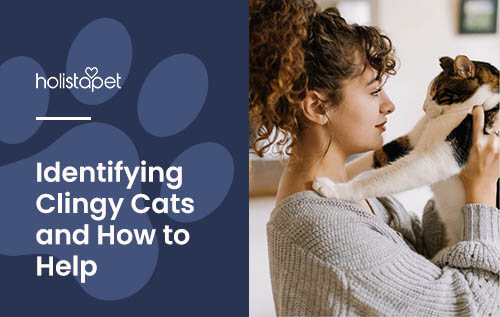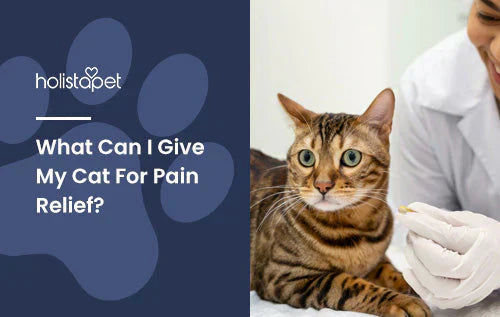Ever notice your cat acting off—hiding more than usual, yowling at nothing, or refusing to eat? Signs of anxiety in cats aren’t always obvious, but catching them early can make a big difference. Some cats handle change well, but others? Not so much.
Big shifts like moving, new pets, or even loud noises can send a cat into full-blown panic mode. The signs aren’t always obvious, but they’re there—restlessness, over-grooming, or sudden aggression can all point to anxiety.
The good news is you can help. This guide breaks down the common signs of anxiety in cats, what causes them, and simple ways to ease their stress. Let’s get into it!
What Is Cat Anxiety and Is It Common?
Does your cat hide under the bed for hours? Meow nonstop? Refuse to eat?
Cat anxiety is more common than you’d think, and it can show up in different ways. Some cats are naturally more skittish, while others develop anxious behaviors due to sudden changes or past trauma.
Anxiety in cats is a reaction to stressors like loud noises, unfamiliar people, new environments, or separation from their favorite human. Some felines shake it off quickly, while others struggle with persistent nervousness, loss of appetite, or excessive grooming.
Once you know what’s triggering your cat’s anxiety, you can take steps to help them feel more secure and at ease.

Why Is It Important To Address a Cat's Anxiety?
Anxiety isn’t just about a cat being “nervous.” If left unchecked, it can turn into bigger problems—constant meowing, destructive scratching, or even refusing to eat. Over time, stress can mess with their digestion, immune system, and overall well-being.
A happy cat is a healthy cat. If your feline is showing signs of distress, addressing it early can prevent long-term issues. Identifying and managing anxiety early can help improve your cat's life, keeping them healthy and happy.
What are the Common Cat Anxiety Symptoms?
The most common anxious symptoms generally fall into three categories: behavior, body language, and physical health. Spotting these signs can help you understand your cat's behavior and act accordingly. In the next few sections, we will look at the specific signs of cat anxiety.
Behavioral Signs of Cat Anxiety
Understanding cat behavior can give clues about your furry friend's disposition. Most cats facing anxiety will show the following behavioral changes:
-
Excessive Vocalization. Meowing, yowling, or making other sounds more than usual.
-
Excessive Grooming. Over-grooming can lead to skin irritation and bald patches.
-
Excessive Scratching. Scratching furniture or other objects more frequently.
-
Excessive Sleeping. Increased sleep, which can be a sign of cat stress.
-
Restlessness. Pacing or inability to settle down.
-
Loss of Appetite, Eating less, weight loss, or not eating at all are signs of cat anxiousness.
-
House Soiling. Urinating or defecating outside the litter box.
-
Hiding. Spending more time in secluded spots.
-
Aggression. Increased aggression towards people or other pets.

When cats feel anxious, they often display specific body language cues. You may notice signs such as:
-
Trembling or Shaking. Visible shaking or shivering.
-
Hair Standing Up. Also called piloerection, where the hair on the back and tail stands up.
-
Tail Tight or Flicking. A tightly curled tail or rapid flicking.
-
Hunched Posture. A crouched or hunched stance.
-
Dilated Pupils. Widened eyes may indicate distress or fear.
-
Avoiding Eye Contact. Refusal to look directly at you or other animals.
-
Flattened Ears. Ears pinned back against the head.
Physical Health Signs of Cat Anxiety
Anxiety in cats can also manifest through physical signs. Keep an eye out for these symptoms:
-
Rapid Breathing or Panting. Increased respiratory rate or panting, which is unusual in cats.
-
Bald Patches. Hair loss due to over-grooming or distress.
-
Weight Loss. Significant weight loss due to reduced appetite.
-
Vomiting or Diarrhea (In Extreme Cases). Digestive issues triggered by severe anxiety.
What Are the Causes of Cat Anxiety?
There can be many reasons for a cat's anxious behavior. Usual causes range from separation or isolation to previous trauma and more. Identifying and managing these triggers can help you address your cat's suffering, stat. Let's discuss the common causes of cat anxiety and how you can deal with them.
Separation Anxiety
Cats left alone or separated from their favorite person may experience separation anxiety. This type of anxiety is common among pets that have a strong bond with their owners.
Signs include persistent vocalization, destructive behavior, and inappropriate urination. Providing plenty of mental and physical stimulation can help ease cat separation anxiety.
Loud Noises
Loud noises can be a huge source of anxiety for cats. Common triggers include thunderstorms, fireworks, and even household appliances.
Anxious cats may show signs such as trembling, hiding, or attempting to escape. Creating a safe and quiet space for your kitty can help them feel more secure during stressful events.

Boredom
Lack of mental and physical stimulation can make kitties feel down or unsettled. Cats need activities and engagement to stay happy and healthy.
Your feline friend may develop negative behaviors like excessive scratching and grooming without proper stimulation. Providing toys, scratching posts, cat trees, and interactive play can help prevent boredom-induced anxiety.
Competition With Other Cats or Pets
Competition with other cats or pets in the home can also trigger anxiety. Cats are territorial creatures and may feel threatened by other animals.
Aggression, hiding, or over-grooming are signs of anxiety due to competition. Ensuring each pet has their own space and resources can help reduce tension.
Changes to a Cat's Environment or Routine
Felines are creatures of habit. Any changes to a cat's environment or routine can cause them stress. Moving to a new home, rearranging furniture, or changing their daily schedule can all be stressors.
An anxious cat may exhibit signs like hiding, decreased appetite, or increased vocalization in response to changes. Slowly introducing changes and keeping a consistent routine can help ease their worries.
Unfamiliar People or Animals
Unfamiliar people or animals entering a cat's space can cause anxiety. They may feel threatened by new faces or scents in their environment.
In these situations, a cat's anxiety can manifest as hiding, hissing, or avoiding contact. Controlled exposure to new people or animals and having a safe space can help reduce cat stress.

As mentioned, foreign smells can lead to cat anxiety. Felines have a keen sense of smell, and unfamiliar scents can make them feel uneasy or threatened.
A cat's anxiety due to unknown smells can manifest as spraying, hiding, or over-grooming. Introducing new scents gradually and providing familiar objects can help your pet adjust to new smells.
Past Traumatic Event
A past traumatic event can leave a lasting impact on a cat's behavior and stress levels. Abuse, neglect, or a serious accident can trigger ongoing anxiety.
A traumatized cat may exhibit signs like hiding, aggression, or over-grooming. A safe, calm environment and patience can help a cat overcome anxiety.
Lack of Socialization
A lack of socialization, especially at a young age, can lead to anxiety. Cats without much exposure to various people, animals, and environments may become anxious in new situations.
Signs of anxiety due to poor socialization include hiding, aggressive behavior, and over-vocalization. Controlled exposure to new experiences and positive reinforcement can help improve a cat's socialization skills, potentially easing their anxiety.
Underlying Medical Issues
Underlying medical conditions can contribute to anxiety in cats. Health issues like discomfort or hormonal imbalances can make felines more prone to anxious behaviors.
Cats with medical conditions may show signs such as irritability, hiding, or changes in appetite. Regular veterinary checkups and proper treatment can help manage both the medical issue and the related anxiety.
A New Baby or Family Member
Introducing a new baby or household member can cause cats anxiety. The sudden change in the household dynamics and routines can be stressful for our furry friends.
A stressed cat may respond by hiding, becoming more vocal, or displaying aggressive behaviors. Gradually introducing the new family member and providing extra attention to your cat can help ease their worries during this change.

Potential Preventative Measures
Now that you know the common causes of cat anxiety, you may wonder what's next. Well, prevention is always better than cure, as they say. So, let's look at some preventative strategies to keep your cat safe from triggers:
- Keep a Consistent Routine. Maintain regular feeding, play, and sleep schedules.
- Provide Mental and Physical Stimulation. A cat tree, scratching post, and fun play session can keep your cat engaged.
- Try CBD for Cats. CBD (cannabidiol) is famous for its calming effects, promoting relaxation in our feline companions. CBD works by interacting with the feline endocannabinoid system (ECS), which plays a role in cats' mood and stress response.
- Remove or Manage Triggers. Identify and cut exposure to anxiety-inducing situations.
- Introduce Changes Slowly. Gradual changes can help an anxious cat adjust without feeling overwhelmed.
- Provide Enough Resources. Ensure enough litter boxes, food bowls, and resting places to reduce resource competition at home.
- Regular Vet Visits. Regular checkups with a veterinary medicine expert can help identify and address health issues early, preventing anxiety.
How to Provide Comfort to Anxious Cats
Comforting an anxious cat involves creating a secure and calming environment for them. Here are some ways to provide your kitty comfort:
-
Spend Time With Your Cat. Regular interaction and playtime can help reduce cat anxiety.
-
Natural Calming Aids. HolistaPet's CBD Oil, soft CBD Calming Chews, and crunchy CBD Cat Treats can promote relaxation in your cat. Our CBD cat products are all-natural, dairy-free, gluten-free, non-GMO, third-party lab-tested, and vet-approved, giving pet parents like you added support and peace of mind.
-
Provide Your Cat With a Safe Space. Choose a quiet, comfortable area where your cat can retreat when feeling anxious.
-
Reward Positive Behavior. Use treats and praise to reinforce calm and positive behavior.
When Should I Bring My Cat To See a Veterinary Behaviorist?
If your cat’s anxiety isn’t improving no matter what you try, it might be time to call in a pro. A veterinary behaviorist can pinpoint the root cause of your cat’s stress and create a treatment plan that actually works.
Serious signs that may need professional help include:
-
Hiding all the time.
-
Attacking people or other pets.
-
Refusing to eat.
-
Losing weight.
-
Avoiding the litter box.
-
Over-grooming to the point of bald patches or skin irritation.
If these behaviors don’t improve, a veterinary behaviorist can help uncover deeper issues and offer solutions to bring your cat relief.
Final Thoughts - Signs of Anxiety in Cats
Anxiety can take a toll on your cat’s happiness, but you don’t have to let it take over their life. Spotting the signs early and making small changes can go a long way in helping your cat feel safe and secure. Whether it’s creating a cozy retreat, keeping a consistent routine, or offering calming support, every little effort makes a difference.
Need an extra helping hand? Our CBD cat products are here to support relaxation and ease stress naturally. With the right care, your feline friend can get back to lounging in sunny spots, chasing toys, and living their best, stress-free life.

![Signs of Anxiety in Cats + Solutions [Decoding Feline Frustration]](http://www.holistapet.com/cdn/shop/articles/spot_a_frustrated_feline_96adfb4a-1625-4d8e-a0ef-ca49ffe772ba.jpg?v=1742874588&width=1500)

 CBD Oil for Cats - Fast Acting
CBD Oil for Cats - Fast Acting
 CBD Cat Treats - Easy Dose
CBD Cat Treats - Easy Dose
 CBD Calming Chews for Cats - Highly Rated
CBD Calming Chews for Cats - Highly Rated
 CBG Oil for Dogs and Cats - Loved by Thousands
CBG Oil for Dogs and Cats - Loved by Thousands





Leave a comment
All comments are moderated before being published.
This site is protected by hCaptcha and the hCaptcha Privacy Policy and Terms of Service apply.